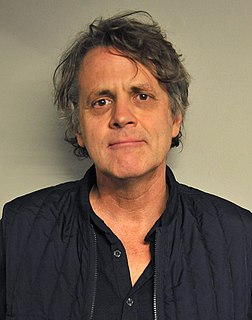A Quote by Jonathan Dee
I think that good storytelling of any kind does promote a humility in that it encourages you to see the world the way that other people see it.
Quote Topics
Related Quotes
I see myself, in terms of the question of capitalism, as I would support democratic socialism over a capitalist system, because any approach... or participatory economics, which is another great model that people like Michael Albert are putting out there... any system that encourages us to think about interdependency, and to be able to use the world's resources in a wiser way, for the good of the whole, would be better for the world than capitalism.
When you're working as an actor, you don't think that when you get out of school, it's going to be so hard to get a job. Just to get a job. Any job. Whatsoever. You don't think that people are going to see you in a certain way. Uta Hagen said this, "In my life, I see myself as just this, you know, kind of flamboyant, kind of sexy middle-aged woman. And then I see myself onscreen, and I go 'Oh my God.'" And it's the same thing with me. I didn't see myself any different from my white counterparts in school. I just didn't!
The way to Christ is first through humility, second through humility, and third through humility. If humility does not precede and accompany and follow every good work we do, if it is not before us to focus on, it it is not beside us to lean upon, if it is not behind us to fence us in, pride will wrench from our hand any good deed we do at the very moment we do it.
We have never seen the isolation of the rich to the degree that we see it now. They're global. They travel all over the world. They're not in any way - it seems to me - committed to any one place. So it's easy for them to say, "We don't see this. We don't see poverty. We don't think it's that bad. We think wealth is really being distributed in ways that are fair."
You approach faith with humility. You can have some idea, but it boils down to do you see religion as a club, or do you see religion as a path? Do you see it as a wall that separates you or do you see it as a bridge that connects you to God and other people? When you see it as a bridge, you aren't so worried about bringing others over to your side.
The most fun is to inhabit the world where cartoon physics is king. And that just means that things move with kind of an energy and exaggeration and appeal that is different from what we see in our world. We're bound by, at least, Newton's Laws of physics here and in animation we're not. So, director's can be extremely eccentric, you can sculpt motion in animation in a way that you just can't do any other way. In any other performance medium.
I think that's why it's difficult for women when they watch TV and we see one version of a woman who is attached at the hip to a guy, and that's kind of her whole thing. You kind of go, 'I don't relate to this, I don't feel this.' You know? Maybe somebody does, but not everyone. That's the other thing about storytelling, is you can't represent everybody. You know, you can't seek to do that. You have to tell stories that you're interested in talking about and characters that intrigue you.
I will continue to work for the advancement of freedoms in Egypt and the Arab world until I drop dead... Education itself - which can and should play an important role in the apprenticeship of tolerance and respect for other people -sometimes encourages identitarian closure, or even extremist behaviour... It is therefore vital to ensure that education does not encourage rejection of other people or identitarian closure, but that on the contrary it encourages knowledge and respect for other cultures, other religions and other ways of being and living.






































